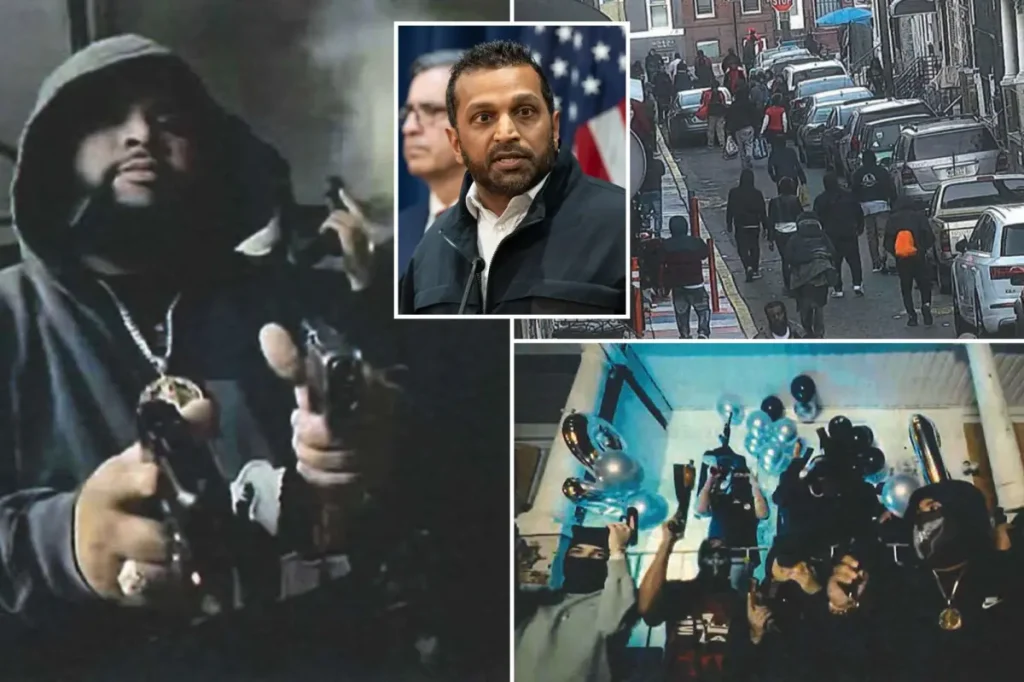FBI Dismantles Major Drug Organization in Philadelphia’s Kensington Neighborhood
In a landmark operation that officials are hailing as “historic,” the FBI and federal prosecutors have struck a significant blow against Philadelphia’s open-air drug market. On Friday, they announced the indictment of 33 alleged members of the Weymouth Street Drug Trafficking Organization, a criminal enterprise accused of controlling drug distribution in the Kensington neighborhood for nearly a decade. The sweep resulted in 24 arrests during coordinated operations, with eight suspects already in custody and one remaining at large. This case represents what U.S. Attorney David Metcalf described as “the largest federal indictment this century brought by our district,” targeting what has long been considered one of Philadelphia’s most dangerous drug corridors.
The investigation focused on the 3100 block of Weymouth Street, which authorities identified as a prolific hub within Kensington’s notorious open-air drug market. According to the indictment, the criminal conspiracy operated from January 2016 through October 2025, trafficking fentanyl, heroin, crack cocaine, and powder cocaine throughout the neighborhood. FBI Director Kash Patel emphasized the significance of the operation, saying, “This takedown is how you safeguard American cities from coast to coast. We have permanently removed a drug trafficking organization off the streets of Philadelphia.” Patel praised the years of collaboration between the FBI, Philadelphia Police Department, and the U.S. Attorney’s Office, calling it a model for reclaiming violent corridors from criminal organizations.
Prosecutors allege the organization was led by a three-person management team that operated with a sophisticated business structure. Jose Antonio Morales Nieves, 45, of Luquillo, Puerto Rico, known as “Flaco,” allegedly “essentially owned” the block and charged rent to other dealers operating in the territory. Ramon Roman-Montanez, 40, of Philadelphia, known as “Viejo,” reportedly managed daily operations and organized dealer shifts. Nancy Rios-Valentin, 33, of Philadelphia, allegedly oversaw finances and scheduling. What made the organization particularly dangerous, according to authorities, was its willingness to use violence—including shootings, murder, and assaults—to enforce its territory and retaliate against witnesses who cooperated with law enforcement. While officials noted that no substantive murder or shooting counts have been filed yet, they emphasized that the investigation continues.
The operation itself was massive in scale, involving nine tactical teams and hundreds of law enforcement officers, according to FBI Special Agent in Charge Wayne Jacobs. Most arrests occurred in Kensington, with additional suspects apprehended in Puerto Rico, Delaware, and New Jersey. During the operation, authorities executed 11 federal search warrants, recovering dozens of firearms and significant quantities of narcotics from alleged stash locations. “For too long the Weymouth Street drug organization flooded Kensington with drugs and terrorized residents with horrific acts of violence and intimidation,” Jacobs said. “That ended today.” He also announced that the FBI will launch public safety advertisements urging residents to share crime tips securely, adding, “Our job doesn’t end with these arrests. We will remain here, standing with the people of Kensington.”
Philadelphia Police Commissioner Kevin Bethel framed the case as representative of the city’s strategic shift in addressing open-air drug markets. Rather than treating street-level drug dealing as isolated incidents, authorities are now approaching these operations as organized criminal enterprises that pose significant public safety threats. “We’re not going to apologize for removing people who terrorize our community,” Bethel stated. “This is the model we can keep running.” Officials described the case as part of PSN Recon, an offshoot of Project Safe Neighborhoods that combines federal, state, and local intelligence to target violent offenders using a block-by-block approach. U.S. Attorney Metcalf explained that representatives from various agencies meet monthly to identify the most dangerous actors and pursue organization-level prosecutions instead of one-off gun or drug cases.
The gravity of this operation extends beyond Philadelphia, reflecting a nationwide commitment to combating drug trafficking organizations that use violence to control territory. Deputy Attorney General Todd Blanche emphasized the federal government’s stance: “Drug traffickers who poison our communities and enforce their territory through violence will face the full force of federal law. Working alongside our state and local partners, the Department of Justice will continue to dismantle these criminal networks and restore safety to neighborhoods that have suffered for far too long.” FBI Director Patel concluded the announcement by thanking the investigators and prosecutors who built the case over years, stating, “This is exactly how you safeguard American lives. The blocks belong to the residents, not the drug dealers.” U.S. Attorney Metcalf offered a stark warning to remaining criminals in the area: “The next indictment has a space with your name on it.” While this operation marks a significant victory in the battle against drug trafficking in Philadelphia, authorities acknowledge that their work continues, with all defendants presumed innocent until proven guilty.


